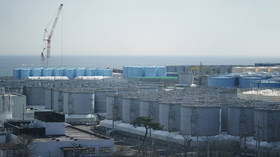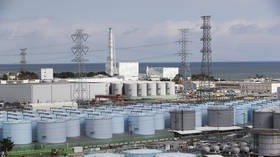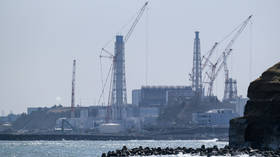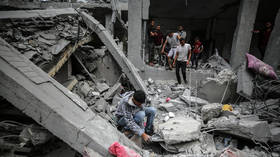Cancer patients seek damages from Fukushima operator

A Tokyo court began hearings on Thursday in a landmark lawsuit filed by six cancer patients against the operator of the ill-fated Fukushima nuclear power plant. The plaintiffs were children at the time of the 2011 disaster – when the plant was crippled in a devastating earthquake and subsequent tsunami – and they developed thyroid cancer later in life.
The group is seeking a total of 616 million yen ($4.9 million) in damages from the Fukushima operator, the Tokyo Electric Power Company Holdings (TEPCO). The plaintiffs believe the plant’s operator is responsible for their illnesses and the impact they’ve had on their lives.
“Because of the treatments, I could not attend university, or continue my studies for my future job, or go to a concert. I had to give up everything,” one of the plaintiffs, identified only as a woman in her 20s, told the court. “I want to regain my healthy body, but that’s impossible no matter how hard I wish.”
The plaintiffs, who were between the ages of six and 16 years old at the time of the disaster and lived in different parts of Fukushima prefecture, were diagnosed with thyroid cancer between 2012 and 2018, according to their lawyers.
The TEPCO legal team, however, told the court that the plaintiffs were not exposed to enough radiation to cause cancer, citing tests that had been run on some 1,000 children who lived around the plant. According to the data, more than half of them were not exposed to radiation at all, while the others received minor doses of radiation with no one exceeding 50 millisieverts – the annual limit for nuclear plant workers.
The landmark lawsuit – which is the first-ever class-action against TEPCO over health problems allegedly linked to the disaster – was filed in January this year. Establishing a solid link between thyroid cancer cases and the 2011 disaster is meant to be the focus of the lawsuit. No such link has so far been established by a special expert team or previously established by the regional government that probed the health impact of the disaster.
The Fukushima government tested some 380,000 residents aged 18 or younger at the time of the accident for thyroid cancer, and some 300 were diagnosed with cancer or suspected cancer. The plaintiffs’ legal team argues that the occurrence rate – about 77 per 100,000 – is significantly higher than the usual one to two cases per million, and can only be linked to radiation – a well-known risk factor for thyroid cancer. Prefectural officials and experts have blamed the abnormal rates on excessive screening and over-diagnosing.
The Fukushima power plant was severely damaged after the 2011 9.0-magnitude Tohoku earthquake and a subsequent devastating tsunami. The plant experienced a catastrophic meltdown, becoming the worst nuclear disaster since the 1986 Chernobyl incident.














